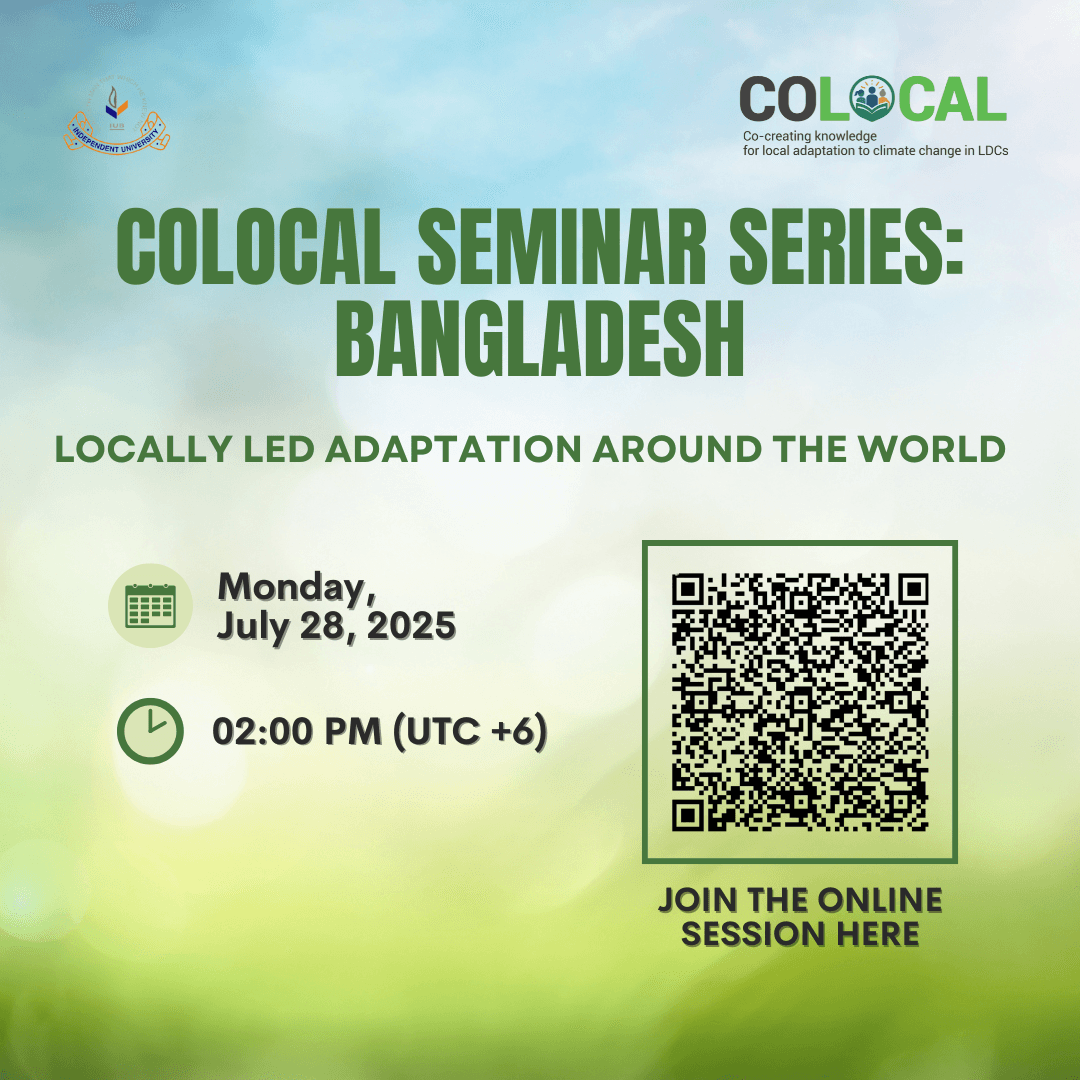COLOCAL Fellows of Bangladesh Present Research at COLOCAL Seminar Series

COLOCAL Fellows of Bangladesh Present Research at COLOCAL Seminar Series
Bangladesh hosted the July session of the COLOCAL Seminar Series after Mozambique led the first event in June. The monthly seminar was started at the COLOCAL annual meeting in Uganda to help fellows from different countries learn from each other and share their work. The July session featured three fellows from Independent University, Bangladesh (IUB) - Mohammad Julfiqar Haider, Rafia Anjum Rimi, and Chowdhury Alfi Afroze. Their research showed Bangladesh’s strong role in promoting locally led adaptation (LLA) and climate resilience.
Mohammad Julfiqar Haider presented his study, “Exploring Effective Strategies for Integrating Locally Led Adaptation (LLA) into NGOs in Bangladesh.” His research focused on Shyamnagar, a coastal area that faces many climate risks. He talked with NGOs such as BRAC, LEDARS, and UNDP to understand how they use LLA in their projects. His findings showed that many organizations involve communities in planning but face several problems such as strict donor rules, limited local capacity, and lack of national policy support. He suggested more flexible funding, better policy alignment, and stronger cooperation among NGOs, government, and donors.
Rafia Anjum Rimi presented her thesis proposal, “From Community-Based to Locally Led Adaptation: Assessing Effectiveness for Climate Migrants in Khulna’s Urban Informal Settlements.” She is studying how different types of local leadership such as ward-level, municipal, or settlement-based affect adaptation results. She explained that climate migrants often face land insecurity and are excluded from city planning. Her study will recommend ways to make local governance more inclusive and secure for these vulnerable groups.
Chowdhury Alfi Afroze shared her research titled “Reimagining Coastal Resilience: Indigenous Adaptation, Nature-Based Solutions and Biotech for Sustainable Farming in Bangladesh.” She aims to link traditional farming knowledge with modern biotechnology and nature-based methods. Afroze found that scientific innovations are often not accessible to rural farmers. Her research suggests combining indigenous knowledge, sustainable agriculture, and biotech tools to build climate-smart and resilient farming systems. The seminar ended with positive feedback from faculty and fellows. The session reflected COLOCAL’s goal to connect young researchers and support local solutions for climate change across partner countries.